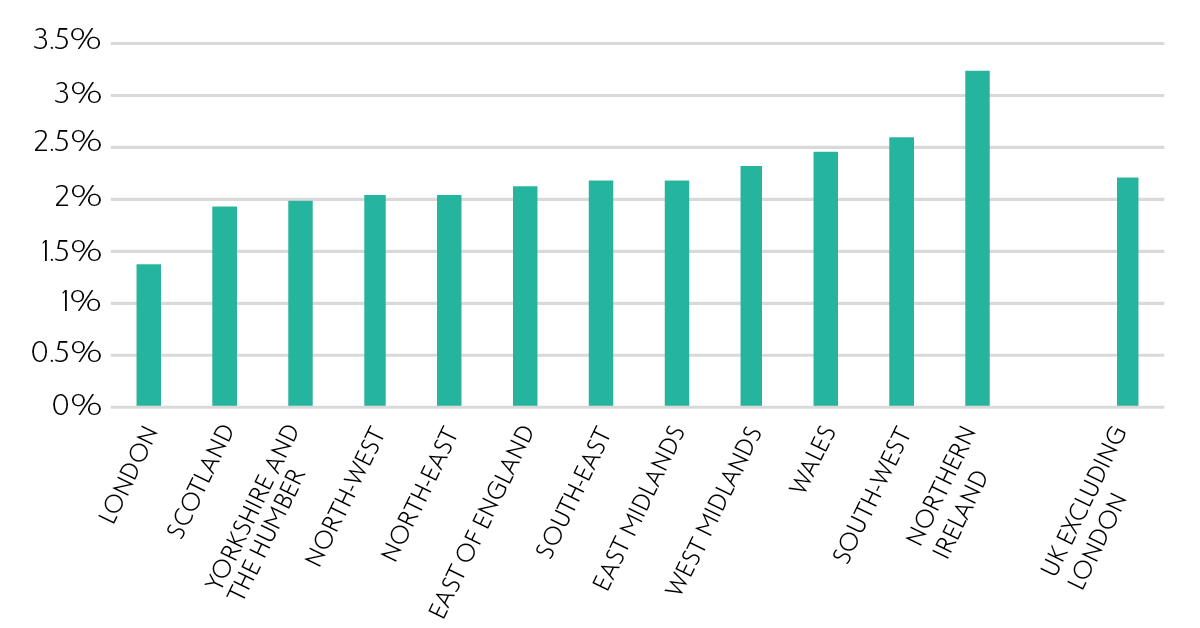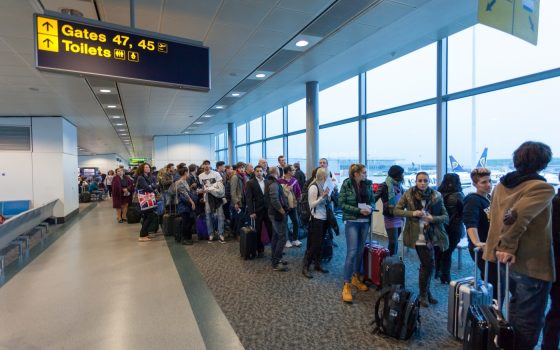Budget tax reform fails to be green or ‘level-up’ despite fuel duty freeze which will continue to hit almost twice as hard outside London
Government’s ‘levelling up’ agenda falls at first hurdle as burden of moving to a green economy felt harder outside of London
11 March 2020
Families outside London will pay nearly twice more on average on fuel duty capital according to new analysis from the New Economics Foundation (NEF) and Common Wealth. The fuel duty burden in London is only 1.37% of income, whereas the equivalent figure across the rest of the UK is 2.21%.
Fuel duty has been frozen since 2010/11, costing the public purse £11.2 bn in lost revenue in the current year alone. And CO2 emissions are up to 5% higher than they would have been if fuel duty had not been frozen. The tax is in need of reform to make it fair.
In order to ‘level up’ outside of London, the government needs to transition to a cleaner economy in a way that boosts infrastructure and jobs in those regions that will be most affected by transition and does not widen current inequalities between people and places. There are roughly 4 million UK jobs in sectors directly ‘critical to climate stability’ and the vast majority of these jobs are highly concentrated in the East Midlands, West Midlands, and Yorkshire and the Humber, some of the areas bearing the highest burden of fuel duty.
The fuel duty burden in Northern Ireland, the South West, and Wales, is significantly higher than in London
Fuel duty as a proportion of equivalised disposable income after household costs, 2020/21

Source: NEF analysis using Living Costs and Food Survey Data, 2017/18 and LFS earnings estimates by region, 2020.
Sarah Arnold, Senior Economist at the New Economics Foundation, said:
“This Budget was an opportunity for the government to ‘level up’ UK regions, putting those places – and the country – on track for a fairer, more sustainable economy. But it’s clear that regions outside London are disproportionately bearing the burden of the zero-carbon transformation – particularly the burden of fuel duty
“The UK remains one of the most regionally unequal countries in Europe and we need to be transitioning to low carbon and addressing this geographical imbalance at the same time.”
Adrienne Buller, Senior Research Fellow at Common Wealth, said:
“Ending the fuel duty freeze would have been good news for reducing carbon emissions, but bad news for addressing regional inequality in the UK.
To meet the government’s twin goals of decarbonising the UK by 2050 while genuinely ‘levelling up’ regions outside London, we need to shift our focus to designing a tax system that drives rapid and just decarbonisation as part of a comprehensive Green New Deal”
Contact
Becky Malone, becky.malone@neweconomics.org /07925950654
Notes to editors
The IFS estimate that fuel duty freezes are 11.2 billion lower they would have been if fuel duty had been increased as planned in the June budget 2010. For further details see: https://www.ifs.org.uk/uploads/Green-Budget-2019-Chapter-9-A-roadmap-for-motoring-taxation‑2.pdf
Carbon Brief estimate that if fuel duty had increased as planned in the June budget 2010, pump prices would be a fifth higher than they are today, and these higher prices would have cut CO2 in 2019 by 2 – 18 million tonnes of CO2. For further details see: https://www.carbonbrief.org/analysis-fuel-duty-freeze-has-increased-uk-co2-emissions-by-up-to-5-per-cent
The burden of fuel duty was calculated using the most recent Office of National Statistic’s Living Costs and Food Survey (LCF), available for 2017/18. The analysis only considers impact on households and does not take into account any proposed changes to fuel duty on so-called ‘red diesel’, or impact on businesses. The LCF holds data on average weekly spend broken down across a wide range of types of household expenditure. The volume of petrol purchased per household was calculated by dividing household spend on petrol by the weighted average cost of petrol and diesel in 2017/18 (weighted by the proportion of petrol and diesel cars in the UK).
To calculate the fuel duty burden, we divide fuel duty paid by household by their equivalised disposable household income after housing costs, uprated by average annual wage growth in the first quarter of each year by region, using Labour Force Survey data. We forecast wage growth for 2020 based on the previous five year’s growth in each region. This gives us average burden of fuel duty for next year — 2020/21 — by region.
The New Economics Foundation is working with Common Wealth on a new programme of work on the design of a tax system for a Green New Deal.






